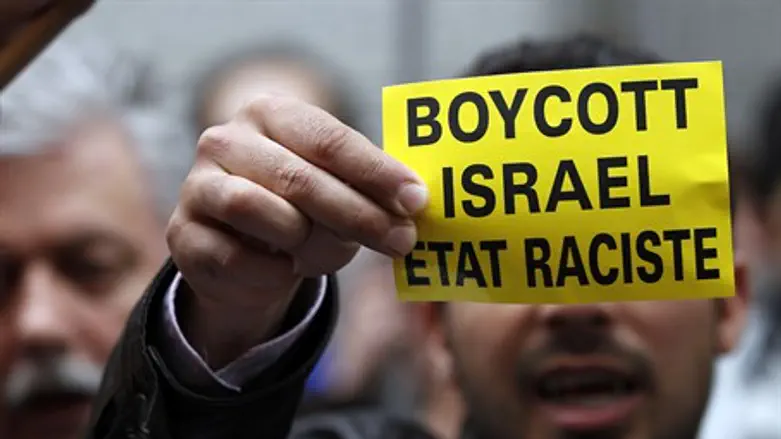
Tesco, the UK’s largest supermarket chain, says it will no longer sell products originating from Judea and Samaria starting this September, The Jewish Chronicle reports.
A spokesman for the supermarket said the move was not "politically motivated" and not connected to the Gaza conflict.
The decision was part of a “regular product review process”, he said, according to The Jewish Chronicle.
The only product from Judea and Samaria currently stocked were dates and they were being pulled for “commercial reasons”, the spokesman said.
Meanwhile two separate health and beauty product suppliers told the Chronicles that Tesco had asked them to list all their products and ingredients from beyond the Green Line.
Tesco said it had asked for the information because of inquiries from customers.
The spokesman said, “We have received some questions from customers about products we sell that are sourced from Israel or the West Bank.”
“To make sure we answered their questions with the most accurate and up to date information, we contacted suppliers to double check our own information, particularly for branded products,” he added.
“We have no plans to change our position on sourcing from Israel,” the spokesman said.
Several weeks ago, Britain's largest trade union voted to boycott Israeli companies in a unanimous vote.
The UNITE union adopted the anti-Israel motion at its first policy conference, calling "to vigorously promote a policy of divestment from Israeli companies." The motion added that such a boycott would be "similar to the boycott of South African goods during the era of apartheid" - representing an adoption of the rhetoric of the virulently anti-Israel BDS (Boycott Divestment and Sanctions) movement, which seeks to portray Israel as similar to apartheid South Africa.
There have been several attempts in several countries to block the sales of Israeli products from Judea and Samaria.
In May, the European Union (EU) banned the import of poultry and eggs from Jewish communities in Judea and Samaria, and from most of Jerusalem.
That move came several months after the EU published new guidelines which boycott Israeli entities operating beyond the 1949 Armistice Lines.